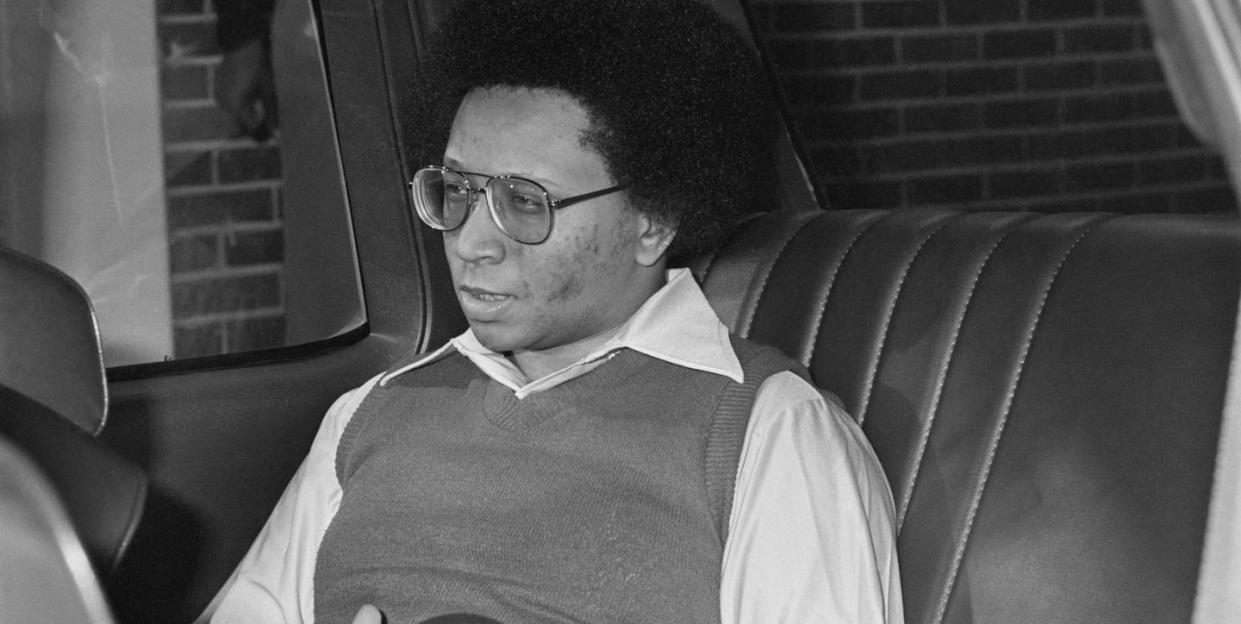The Atlanta Child Murders Cases At The Center Of Netflix's 'Mindhunter' Are Far From Closed

Forty years ago, a series of kidnappings and killings that would become known as the Atlanta Child Murders were considered solved after the arrest and conviction of Wayne Williams. Atlanta-area police closed the case, but here's the thing: They only sought criminal charges in two of the 29 pending Atlanta Child Murder cases, leaving many of the families of the victims unsatisfied and looking for answers.
In an effort to answer those questions and provide closure for victims' families, authorities reopened the Atlanta Child Murders cases in early 2019.
Notably, the Atlanta Child Murders are also the focus of season two of the hit Netflix show Mindhunter, which debuted on August 16.
Many questions still remain about the Atlanta Child Murders to this day—here's what you need to know about where the cases currently stand:
The Atlanta Child Murders cases included the kidnappings and murders of 29 children and young adults.
From 1979 to 1981, every few months an Atlanta-area headline told the gruesome tale of a black child's body found strangled, shot, or beaten to death. Sometimes, their bodies were not found until months later when they were too decomposed to be able to determine the cause of death.
The body of one victim associated with the case, Darren Glass, who was 10 when he disappeared, has never been recovered, according to The New York Times. Besides their race, the victims shared two more commonalities: their age and that they were mostly from low-income areas of Atlanta.
In 1981, Wayne Williams was arrested and eventually found guilty of two of the murders.
But no other charges associated with the case have ever been brought against Williams.
At the time, the investigation involved local authorities and the FBI. John E. Douglas, the author of Mindhunter: Inside the FBI's Elite Serial Crime Unit and the FBI special agent upon whom Jonathan Groff's character in Mindhunter is based, was called in to advise on the case.
According to reports at the time, police were able to tie two of the murders—Nathaniel Cater and Jimmy Ray Payne, who were both young adults—together via fibers and dog hairs found at the scenes.
For his part, Douglas left his interviews with Williams with the impression that he could not be guilty of all 29 or perhaps even any of the murders, per a recent interview with Vulture.
Since his incarceration, Wayne Williams has maintained his innocence.
After being found guilty of two of the murders in 1982—those of Payne and Cater—Williams is currently serving a life sentence, despite persistent claims of innocence, per CNN. After convicting Williams, the Atlanta Police closed 21 of the other Atlanta Child Murder cases, according to the Atlanta Journal-Constitution. (Another would be closed later, effectively linking 22 cases to Williams.)
However, many families of the victims don’t believe Williams is responsible for all 29 of the murders, and have cultivated their own theories that the Ku Klux Klan may even be responsible, per CNN.
Five of the 29 cases were reopened in 2005.
DeKalb County police chief Louis Graham, who was a member of the original task force who investigated the case and has said he never believed Williams was responsible for the killings, announced in May of 2005 that five of the cases were being reopened, per NPR.
None of the original task force members were reassigned to those cases—Graham believed it was important that everyone be able to approach the cases with "fresh eyes," he told the national radio station.
A year later, Graham resigned from his position and the interim chief decided that a lack of new leads meant it was time to shift the department’s resources to other cold cases, the Atlanta Journal-Constitution said.
Authorities announced in May 2019 that they would be reviewing the evidence in all 29 cases.
In an effort to grant more closure to the victims' families, Atlanta Mayor Keisha Lance Bottoms ordered the cases reopened and the evidence to be retested with the latest DNA technology this year, per the New York Times. "This is about being able to look these families in the eye and say we did everything we could possibly do to bring closure to your case," Bottoms told the publication.
For his part, Williams has publicly stated that he is "ready and willing to cooperate with any renewed investigation to find the truth on what happened with the purpose of straightening up any lies and misconceptions of my unjust convictions," per the Atlanta Journal-Constitution.
As Atlanta Police and the Georgia Bureau of Investigation continue their work, Bottoms has also formed a task force to create a memorial in the city for victims, according to local news publication 11 Alive in Atlanta. The group is expected to present their plan by the end of the year.
"It is important for Atlanta to acknowledge the innocent lives lost during one of our city's darkest hours," Bottoms told 11 Alive. "This task force will determine a lasting and appropriate tribute for the victims and their families and serve as a testament that those lives mattered. That African-American lives matter."
You Might Also Like

